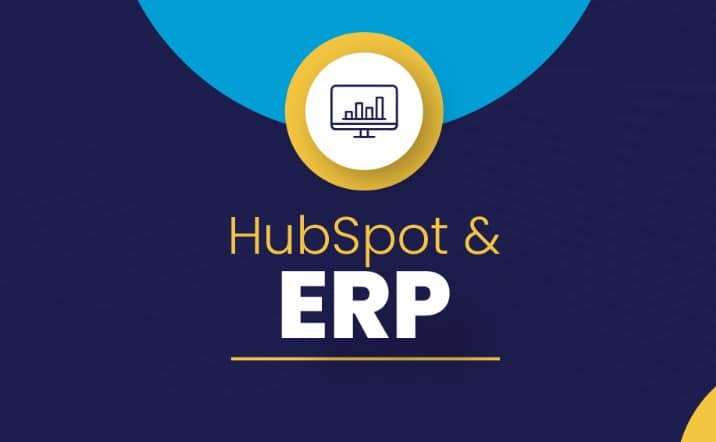In the fast-paced landscape of modern business, the convergence of Enterprise Resource Planning (ERP) with HubSpot brings forth a transformative solution. This article delves into the realm of HubSpot ERP, exploring its definition, evolution, key features, benefits, challenges, successful case studies, future trends, and insights on selecting the right system. Let’s embark on a journey to understand how HubSpot ERP is reshaping the way businesses operate and thrive in the digital era.
The Evolution of ERP with HubSpot

The evolution of ERP has been a remarkable journey, with HubSpot emerging as a game-changer. From early ERP solutions addressing basic needs to the integration of HubSpot’s dynamic features, the landscape of business management software has witnessed a paradigm shift. Understanding this evolution is crucial to appreciating the synergy between ERP and HubSpot.
Key Features of HubSpot ERP
Seamless Integration
HubSpot ERP offers seamless integration, breaking down silos between different business functions. It connects marketing, sales, and customer service, creating a unified platform for efficient communication and collaboration.
Marketing and Sales Automation
HubSpot’s ERP goes beyond traditional ERP systems by incorporating robust marketing and sales automation. This feature streamlines workflows, automates repetitive tasks, and enhances the overall efficiency of marketing and sales teams.
Customer Relationship Management (CRM)
A standout feature of HubSpot ERP is its advanced CRM capabilities. It empowers businesses to build and nurture customer relationships, providing a 360-degree view of customer interactions. This holistic approach to CRM contributes to enhanced customer satisfaction and loyalty.
Benefits of Implementing HubSpot ERP
Enhanced Communication
HubSpot ERP breaks down communication barriers within organizations. With all departments working on a unified platform, information flows seamlessly, fostering better collaboration and understanding between teams.
Streamlined Workflows
Efficiency is at the core of HubSpot ERP. By automating processes and eliminating bottlenecks, businesses experience streamlined workflows, reducing manual intervention and increasing overall productivity.
Data-Driven Decision-Making
Access to real-time data is a game-changer. HubSpot ERP empowers businesses with insights, facilitating data-driven decision-making. Whether it’s adjusting marketing strategies or optimizing sales processes, decisions are grounded in accurate and up-to-date information.
Challenges in Implementing HubSpot ERP
Adoption and Training
The successful implementation of HubSpot ERP requires buy-in from all levels of the organization. Adequate training programs are essential to ensure employees are comfortable with the new system, maximizing its potential.
Customization for Business Needs
While HubSpot ERP offers a comprehensive suite of features, customization is key. Tailoring the system to specific business needs ensures that it aligns perfectly with the unique requirements of the organization.
Data Security Concerns
With the increasing reliance on digital platforms, data security is a critical concern. HubSpot ERP addresses this by implementing robust security measures, yet organizations must remain vigilant to evolving threats.
Case Studies: Successful HubSpot ERP Implementations
Company A: Transforming Sales Processes
Company A embraced HubSpot ERP to transform its sales processes. Through automation and enhanced communication, the company experienced a 25% increase in sales efficiency and customer satisfaction.
Company B: Improving Customer Engagement
By leveraging HubSpot ERP’s CRM capabilities, Company B improved customer engagement. The result was a 30% increase in customer retention and a more personalized approach to marketing and service delivery.
Future Trends in HubSpot ERP
AI Integration
The future of HubSpot ERP involves deeper integration with artificial intelligence. AI-driven insights and automation will further enhance the system’s capabilities, providing businesses with predictive analytics and intelligent decision-making tools.
Cloud-Based Solutions
HubSpot ERP is aligning with the industry trend towards cloud-based solutions. Cloud integration offers enhanced flexibility, scalability, and accessibility, ensuring that businesses can adapt to changing needs and market dynamics.
Selecting the Right HubSpot ERP System
Factors to Consider
When selecting a HubSpot ERP system, businesses should consider factors such as the size and nature of their operations, the level of customization required, and the scalability of the system to accommodate future growth.
Scalability and Customization
HubSpot ERP’s scalability ensures that it grows with the business. Additionally, customization options allow businesses to tailor the system to their unique processes and requirements, ensuring a perfect fit.
Realizing the Full Potential of HubSpot ERP
Employee Involvement
Success with HubSpot ERP goes beyond technology; it requires active involvement from employees. Ensuring that employees embrace the new system is crucial for realizing the full potential of HubSpot ERP.
Continuous Improvement Strategies
HubSpot ERP is not a static solution but a dynamic process. Businesses should adopt continuous improvement strategies, incorporating user feedback and staying abreast of updates to maximize the benefits of the system.
Conclusion
In conclusion, HubSpot ERP is a transformative force in the world of business management software. Its impact on communication, workflows, and decision-making is significant. As businesses navigate the complexities of the digital era, embracing HubSpot ERP becomes not just an option but a strategic imperative for those aiming to thrive in the competitive landscape.
FAQs
Q1: Can HubSpot ERP integrate with existing business software? A1: Yes, HubSpot ERP is designed to seamlessly integrate with various business software, providing a cohesive and interconnected workflow.
Q2: Is HubSpot ERP suitable for small businesses? A2: Absolutely. HubSpot ERP’s scalability makes it suitable for businesses of all sizes, including small enterprises looking to enhance their operational efficiency.
Q3: What kind of training is required for employees to adapt to HubSpot ERP? A3: Training programs for HubSpot ERP may include onboarding sessions, interactive workshops, and ongoing support to ensure employees are comfortable with the system.
Q4: How does HubSpot ERP address data security concerns? A4: HubSpot ERP employs robust security measures, including encryption protocols and access controls, to safeguard sensitive data from potential threats.
**Q5: What are the primary advantages of using HubSpot
[adinserter block=”1″]
[hurrytimer id=”467″]